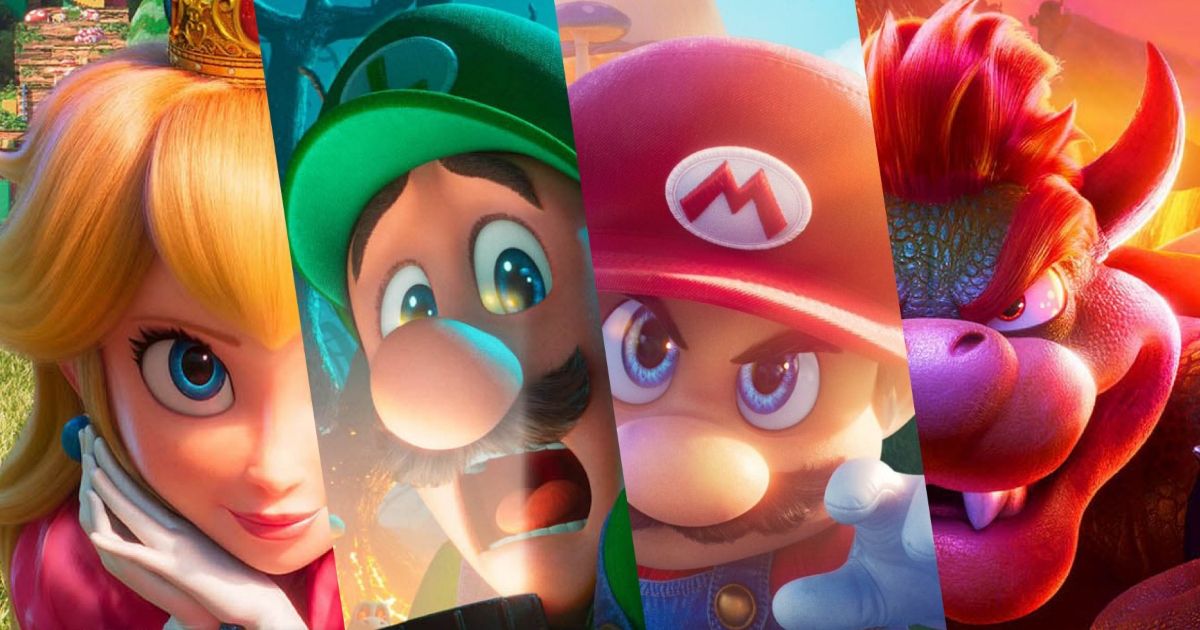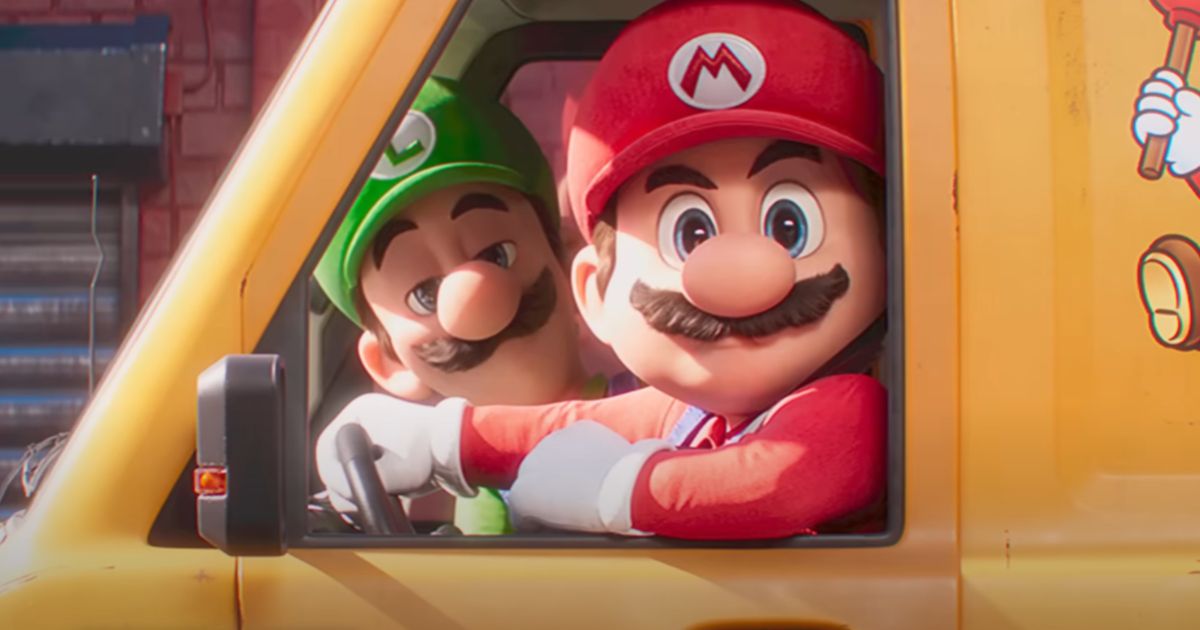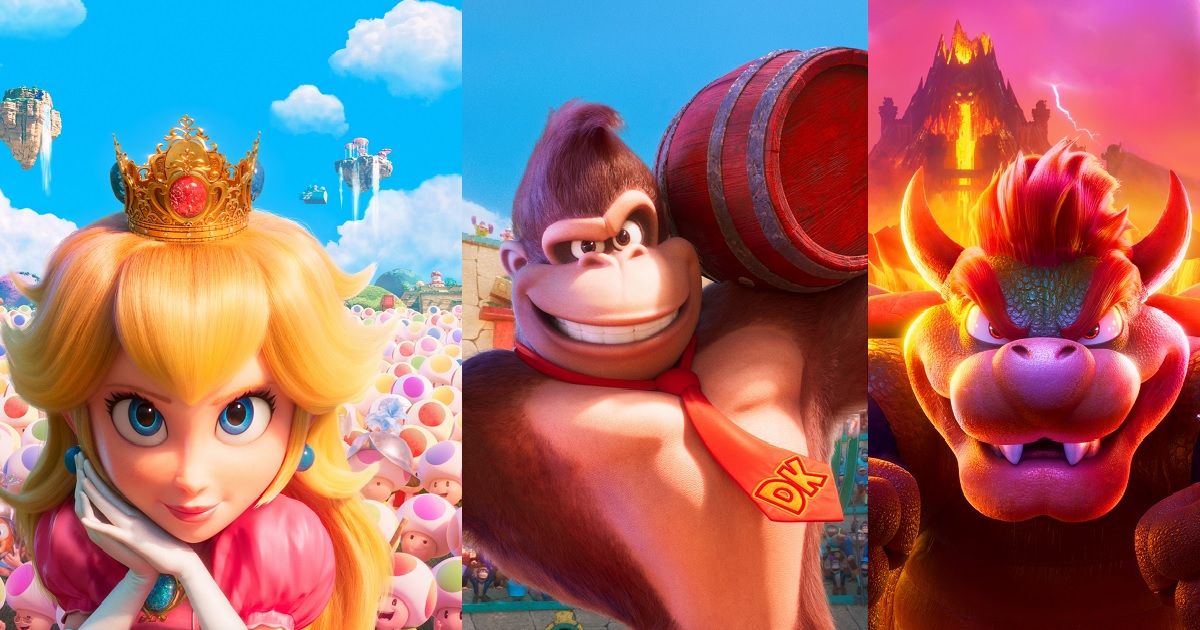The Super Mario Bros. Movie has just hit movie theaters. Whereas fans are sharing their love on the internet about the plumbers' new and reference-filled rendition of the classic video game, critics are panning the feature for its focus on fanservice. Be that as it may, the film is bound to make it big in terms of numbers and box office sales, already leaving its mark as the popular character’s long-awaited animated movie is making moviegoers flock to their local cinemas.
In terms of controversies, the first spark was ignited by the voice cast. Fans who are now seemingly happy with the result were initially adamant about the selection of actors to play their favorite characters. The biggest concern was not casting Charles Martinet, Mario’s video game voice, in his traditional role. Yet, the acceptance rate is generally high for Chris Pratt (Mario), Charlie Day (Luigi), Anya Taylor-Joy (Princess Peach), Seth Rogen (Donkey Kong), and Jack Black (Chris Rock).
The obvious question, which haunted the film’s release, pertained to the quality of the voice acting and whether it would satisfy fans’ expectations. The answer to this can be extracted not from a mere opinion in terms of liking but a series of decisions in script, cinematography, and character development that strikes a certain balance to make the voice actors shine. In other words, The Super Mario Bros. Movie took a conservative approach with some characters and a more disruptive one with others, ultimately creating this balance.
Conservative Voice Acting for the Mario Bros.
One necessary clarification: though Mario and Luigi have had voice acting in the past (cartoons and other media), their video game renditions’ dialogues are mostly limited to catchphrases and reactions. While this is still voice-acting with its own complexities, it is not the same as dialogues for movies or video games with a different approach. In a mixture of both styles, Chris Pratt and Charlie Day’s dialogues capture the cartoony vibe of their video game plumbers. Mario, in particular, utilizes numerous catchphrases throughout the film.
This doesn’t mean that Pratt and Day are imitating Martinet’s tone. While still recognizable, both actors do a remarkable job of giving a cartoony cadence to their deliveries. Moreover, though the movie isn’t short in dialogue, its dynamic rhythm resembles the one in video games, making it understandable even if viewers don’t pay much attention to the dialogue. Relying heavily on its visual component, dialogues are the second layer of vibrant imagery that takes the lead in telling the story.
Last but not least, the conservative approach can be clearly inferred from Mario and Luigi’s personalities in the film. With little character development but some innuendos about the brothers seeking family approval, Mario is still a clunky plumber with a heroic side, and Luigi remains a coward with occasional acts of bravery as long as his brother is with him.
Disruptive Voice Acting for Bowser, Donkey Kong, and Peach
These three characters did see a slight shift in their personalities through voice acting, each for its own reasons. For Anya Taylor-Joy’s Peach, it was clear that Illumination opted for a stronger female lead, even if the Toadstool princess has been more than the damsel-in-distress in the past. Moreover, Joy’s lower tone does contrast with the princess's high-pitched voice in the game, so the mix of these two plus the actress's on-point comedic acting changed the character’s personality.
For Seth Rogen’s Donkey Kong, the result is similar, but the starting point and challenges are different. The video game ape indubitably had a personality in every console entry, but this relied on little to no dialogues within the games. Writers and directors seem to have decided to give him defined character traits, which can be reflected in Seth Rogen’s career. With a goofy light-hearted, frat boy personality, Donkey Kong might remind viewers of Rogen's past in comedy films, with a more family tone for younger viewers. The decision to do so must be anchored solely on the character’s potential for a movie based on DK.
The last character that found a “human side” (so to speak) is Jack Black’s Bowser. The character’s mission in the film is absolutely on-point with the video games. His desire to rule the Mushroom Kingdom works as an excuse for his helpless infatuation with Princess Peach. Grasping the comedic potential, The Super Mario Bros. Movie’s production team cast an actor known for his unique style and humor, who added a musical touch often found in his work. This is the biggest disruption, as Bowser’s personality in video games is limited, similar to Donkey Kong’s case.
It’s important to note that, as explained above, ‘conservative’ and ‘disruptive’ are categories without a positive or negative connotation per se. They are both decisions regarding direction, which can be debated in terms of personal preferences, but are recognizable within the film. So, to the initial question of if The Super Mario Bros Movie's voice acting is good, it’s safe to say that the film's production was mindful of both the stars selected to portray the role and the direction each character should take in terms of voice acting. Again, the production decisions are up for debate regarding results, but they can somehow be explained or deduced through simple analysis, a sign of how much effort was put into the film to try and make it succeed. What’s not debatable is the love Mario Bros. inspires in its fans, promising high-grossing numbers in cinema attendance and a potential sequel.



